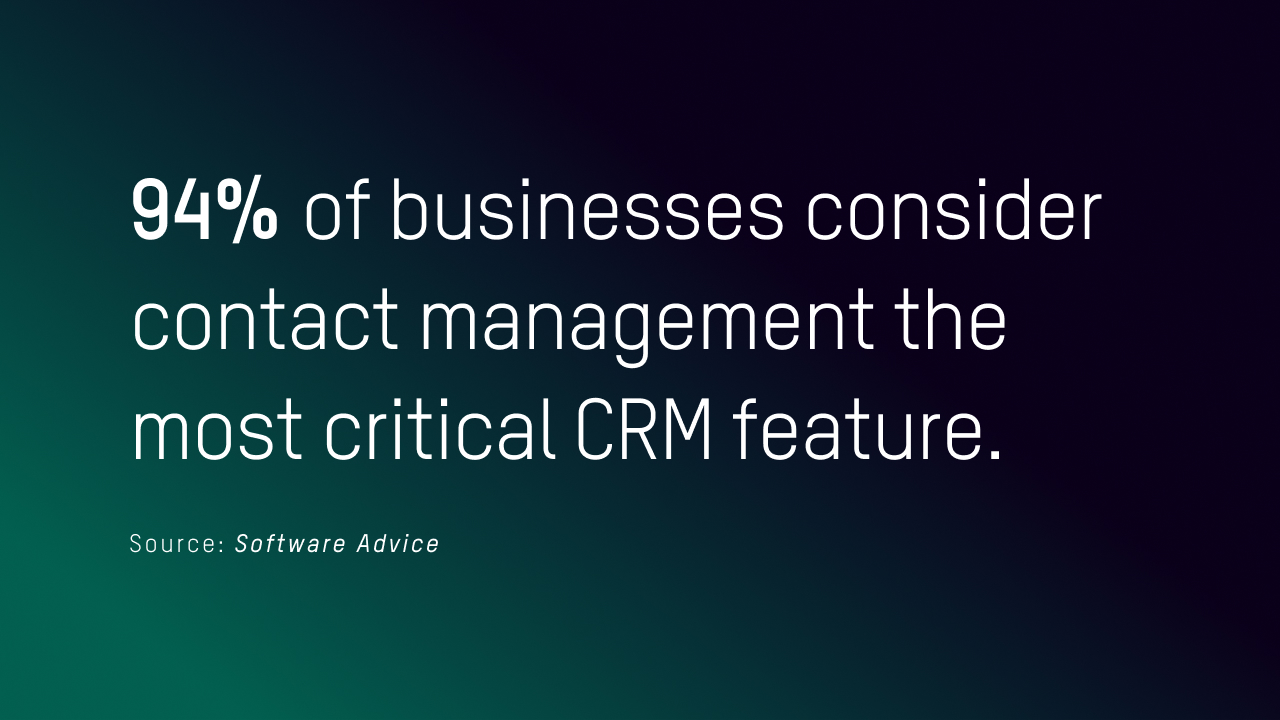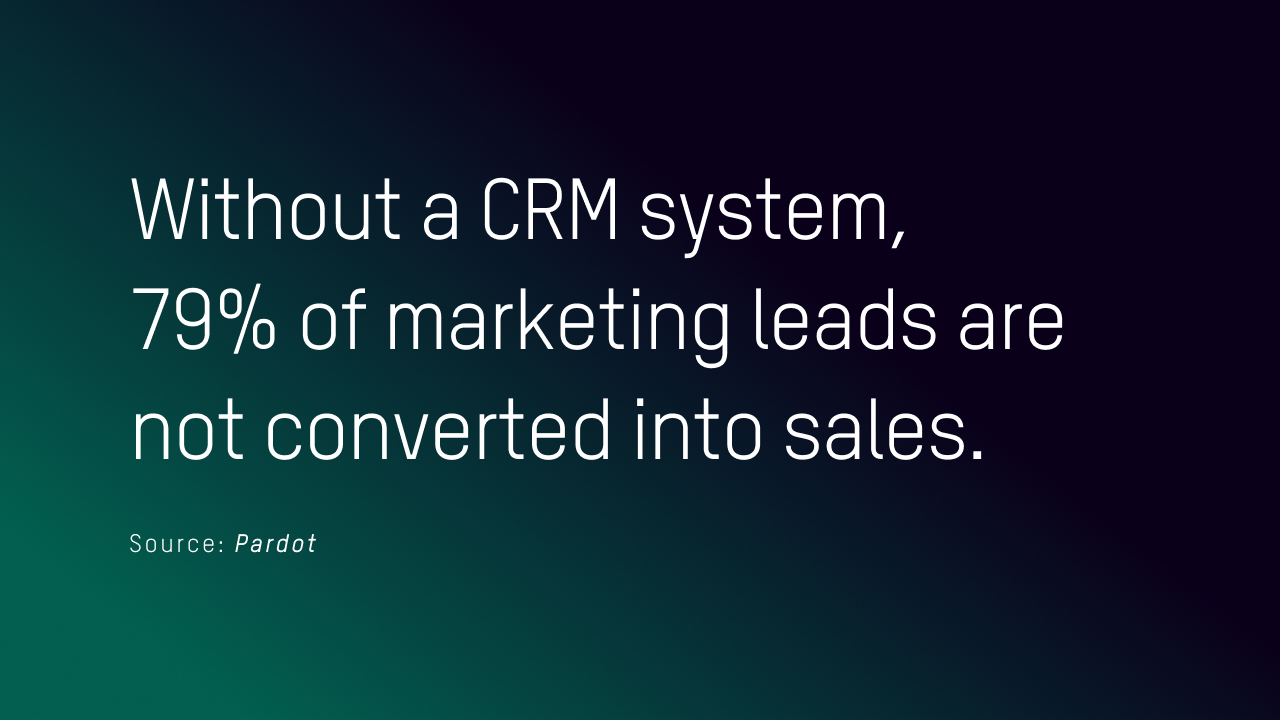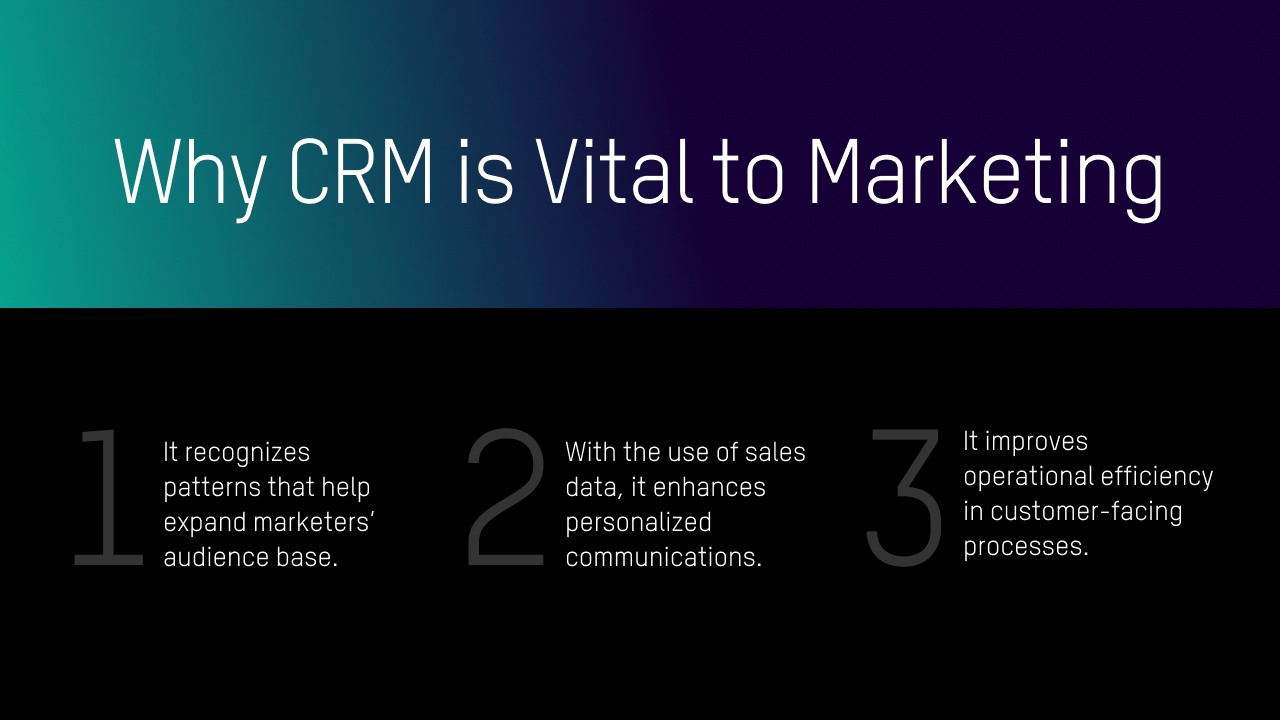As your customer base grows, so does the amount of data you need to track. That’s why you need a reliable platform to efficiently manage this growing volume of information. This is where customer relationship management (CRM) systems come in handy.
What is a CRM System?
A CRM system is used to store, track, and manage information about your leads, prospects, and customers. This includes their contact details, communications histories, sales records, online interactions, and so on. It essentially serves as a centralized repository of all client data that businesses can utilize to optimize marketing efforts and sales processes.
There are many popular CRM systems available, namely, Salesforce, Creatio, and Zoho, which are offered in varying pricing packages. Businesses can also custom-build their own CRM depending on specific needs and requirements.

What are its Core Features?
A CRM system has 5 basic functionalities that support essential business processes: contact management, lead tracking, workflow automation, email integration, and sales analytics.

Contact Management
CRM systems aggregate important customer information such as name, contact number, address, and social media accounts to create a searchable database of client profiles. But CRM systems collect more than just basic customer data; they also log and organize all customer interactions on mobile, email, social, and customer support.

Lead Tracking
CRM systems enable businesses to closely monitor and rank leads based on their level of engagement with the business. They also help marketers and salespeople identify qualified leads and viable targets based on their history of interactions in order to increase conversions.
Workflow Automation
One of the top features of CRM systems is that they reduce manual work and help to increase productivity within an organization. They enable businesses to automate their internal workflow and sales processes, such as sending follow-ups, updating lead statuses, tracking customer complaints, and so on.
Email Integration
Aside from automating workflow, CRM systems allow marketers to integrate email services like Gmail, Outlook, Office 365, and Yahoo! into their processes to efficiently manage all email-based communications with their customers. These solutions enable businesses to compose and send email campaigns in bulk, on schedule, and according to their segmented contact lists.
Sales Analytics
CRM systems also help businesses evaluate their sales performance through data and analytics. They help monitor and measure sales pipelines and provide visualization and reporting tools to aid in the analysis of data.

Why They Matter to Marketers
According to Salesforce, utilizing CRM systems can increase sales by up to 29%. Because of their essential role in driving businesses forward, the number of marketers integrating CRM platforms into their processes is expected to increase by over 12% in the next five years (Fortune Business Insights).
Just how essential are CRM systems from a marketing perspective? Let’s explore how these tools support marketing initiatives:

Recognize Patterns to Expand Audience Base
With the combined use of CRM and first- and third-party data, marketers get to uncover patterns in behavior and attributes of their existing customers to build a custom audience of prospects that are more likely to convert. CRM also helps them make more cost-effective decisions when it comes to their targeting efforts, instead of just targeting a generic consumer base.
Enhance Personalization Based on Sales Data
Through the use of CRM, marketers get to see the steps that customers take in their digital journeys. By studying customers based on their sales activities, companies can also make more informed marketing decisions. It helps them tailor their efforts in a way that can successfully reach, engage, and convert their target consumers according to their unique customer journeys. Data from CRM can also be used for informing product cross-selling and upselling strategies. Indeed, basing these marketing decisions on CRM data can help boost sales and repeat purchases for businesses.
Improve Efficiency in Customer-Facing Processes
CRM platforms automate and accelerate crucial aspects of marketing. With the integration of CRM, almost the entire marketing process can be automated, which significantly shortens the sales process, from sourcing leads to leading them down the sales funnel. Aside from reducing lead time, CRM minimizes friction that can come from a more manual approach. In addition, it gives marketers more time to focus on customer prospecting instead of allocating a chunk of their time on customer-facing operations. In fact, 52% of marketers attribute their increased productivity and marketing success to the use of CRM applications (Harvard Business Review).



